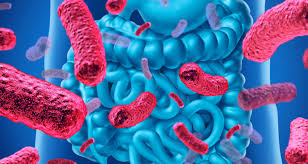
New Probiotic Bacterium Promises Benefits for Food and Pharmaceutical Industries
Scientists have identified a new strain of lactic acid bacterium, potentially expanding its probiotic applications beyond the dairy industry. This breakthrough comes from researchers at Agharkar Research Institute (ARI) in Pune, an autonomous institute under the Department of Science and Technology, who have been investigating the capabilities of Streptococcus thermophilus.
Through collaborative genome analysis, the researchers explored the genetic potential of the strain MCC0200, traditionally known for its role as a starter culture in dairy products. The genetic analysis of MCC0200 revealed numerous genes associated with gastrointestinal survival, intestinal adhesion, and various health-promoting functions, showcasing its potential as a robust probiotic.
Surviving the human digestive system is a significant challenge for probiotics. In vitro studies have shown that MCC0200 withstands the harsh conditions of the gastrointestinal tract, displaying resilience against gastric juices and bile acids, which are critical for probiotic efficacy. Further genomic analysis, published in the journal Microorganisms, identified genes that contribute to acid tolerance and bile resistance, offering insights into the molecular mechanisms behind its survival.
MCC0200 exhibits a strong affinity for intestinal surfaces, enhancing its interaction with host cells. This adhesion capability is essential for promoting gut health and immune function. Additionally, MCC0200 demonstrated the ability to auto-aggregate and co-aggregate with pathogenic bacteria, which is crucial for competitive exclusion and gut colonization.
The strain also possesses antioxidative properties, which are vital for gut health. MCC0200 can scavenge reactive oxygen species, protecting the gut from oxidative stress-induced damage. Furthermore, genome analysis revealed its ability to produce essential vitamins, such as folate (vitamin B9), which is crucial for various cellular functions. This ability positions MCC0200 as a potential nutritive supplement, offering essential vitamins to individuals with deficiencies.
In terms of cardiovascular health, MCC0200 shows promise in cholesterol assimilation. Studies indicate that this probiotic strain can potentially lower serum cholesterol levels, reducing the risk of cardiovascular diseases. While the exact mechanism is still under investigation, MCC0200's cholesterol-lowering properties make it a promising functional food ingredient with cardiovascular benefits.
As research into probiotics advances, Streptococcus thermophilus MCC0200 emerges as a promising candidate for promoting gut health and overall well-being. Its unique combination of probiotic properties and safety profile makes it suitable for applications in both the food and pharmaceutical industries. Continued research and innovation could see MCC0200 paving the way for a healthier future.